Huskies, known for their vibrant energy and striking appearance, require a well-balanced diet to maintain their health and vitality. As a breed with unique dietary needs, husky owners must understand what furry companions can and cannot eat. This article delves into the nutritional requirements of huskies, outlining safe and harmful foods and addressing common dietary questions. Whether you’re a new or seasoned husky owner, this guide will equip you with the knowledge to ensure your husky thrives on a diet tailored to their needs.
What can huskies eat and not eat?
Huskies can eat various foods, including lean meats, certain vegetables and fruits, and high-quality dog food. However, they should avoid foods like chocolate, grapes, onions, and garlic, which can be toxic. It’s important to balance their diet with the proper nutrients and avoid overfeeding, especially foods high in fat and sugar.
The Essential Nutrients Required For Huskies
Huskies, like all dogs, require a balanced diet that includes a variety of essential nutrients to maintain their health and vitality. Here are the key nutrients that are essential for huskies:
Protein: As highly active dogs, huskies require a protein-rich diet. Protein is crucial for muscle development and repair and supports a healthy immune system. Good protein sources for huskies include lean meats like chicken, beef, fish, and lamb.
Fats: Fats are an important source of energy for huskies and help absorb fat-soluble vitamins. They provide essential fatty acids that contribute to a healthy coat and skin. Sources include fish oil, flaxseed, and certain meats. However, monitoring the amount of fat in their diet is important to prevent obesity.
Carbohydrates: While not as critical as protein and fats, carbohydrates can be a good energy source. They should be provided in moderation and come from easily digestible sources like brown rice, oats, and certain vegetables.
Fiber: Dietary fiber is essential for digestive health. It can be found in vegetables, fruits, and whole grains. Fiber helps regulate bowel movements and contributes to a feeling of fullness, which can prevent overeating.
Vitamins and Minerals: Various vitamins and minerals are essential for a husky’s health. This includes vitamins A, B, C, D, E, and K and minerals like calcium, phosphorus, potassium, and magnesium. These are typically found in a well-balanced commercial dog food but can also be supplemented through fresh fruits and vegetables.
What Are The Safe Foods For Huskies?
Huskies, known for their high energy and endurance, thrive on a well-balanced diet. Here’s a list of safe foods that can be included in a husky’s diet:
- Lean Meats: High-quality, lean meats such as chicken, turkey, beef, lamb, and fish are excellent protein sources. They provide the necessary amino acids for muscle development and maintenance.
- Fish: Fish, especially those rich in omega-3 fatty acids like salmon, are great for a husky’s coat and skin health. Ensure the fish is cooked correctly to avoid any potential parasites.
- Whole Grains: Whole grains like brown rice, barley, and oats can be a good source of carbohydrates, which provide energy. They also contain fiber, which aids in digestion.
- Vegetables: Many vegetables are safe and healthy for huskies. These include carrots, green beans, peas, and cooked sweet potatoes. They offer vitamins, minerals, and fiber. Always serve vegetables cooked and in moderation to prevent digestive issues.
- Fruits: Certain fruits like apples (without seeds), blueberries, bananas, and watermelon (seedless) can be a healthy treat. They provide vitamins, antioxidants, and hydration. However, giving fruits in moderation is crucial due to their sugar content.
- Eggs: Cooked eggs are a safe and nutritious addition to a husky’s diet. They are high in protein and contain essential amino acids and fatty acids.
- Cottage Cheese and Plain Yogurt: These dairy products are good sources of calcium and protein. However, some dogs may be lactose intolerant, so starting with small amounts is essential to see how your husky reacts.
- Dog-Specific Foods: High-quality commercial dog foods formulated to meet dogs’ nutritional needs are generally a safe bet. These foods are designed to provide a balanced diet with the right proportions of nutrients.
What Foods To Avoid For Huskies?
When considering the dietary safety of huskies, it’s important to understand why certain foods are harmful and their potential health risks. Here’s a more detailed explanation of the foods to avoid:
Chocolate:
Chocolate is dangerous for dogs due to its theobromine content, a compound similar to caffeine. Different types of chocolate contain varying amounts of theobromine; for example, dark chocolate and baking chocolate are more toxic than milk chocolate. Symptoms of chocolate poisoning include vomiting, diarrhea, rapid breathing, increased heart rate, and seizures. In severe cases, chocolate ingestion can lead to cardiac arrest and death.
Grapes and Raisins:
The exact toxic substance in grapes and raisins is unknown, but their consumption can lead to acute kidney failure in dogs. Even a tiny amount can be harmful, and symptoms like vomiting, lethargy, and dehydration may appear within 12 hours of ingestion.
Onions and Garlic:
Both onions and garlic belong to the Allium family and can cause oxidative damage to red blood cells, leading to anemia in dogs. This toxicity can occur from raw, cooked, or powdered forms. Symptoms include vomiting, weakness, and breathing difficulties.
Xylitol:
This artificial sweetener is commonly found in sugar-free gum, candies, and peanut butter. Xylitol can cause a rapid release of insulin in dogs, leading to hypoglycemia (low blood sugar), which can be life-threatening. Symptoms include vomiting, loss of coordination, seizures, and, in severe cases, liver failure.
Alcohol:
Dogs are much more sensitive to alcohol than humans. Even small amounts can cause ethanol poisoning, leading to vomiting, diarrhea, central nervous system depression, difficulty breathing, tremors, abnormal blood acidity, coma, and even death.
Caffeine:
Caffeine in large enough quantities can be fatal for a dog. Symptoms of caffeine poisoning include restlessness, rapid breathing, heart palpitations, and muscle tremors.
Avocado:
All parts of the avocado contain persin, a fungicidal toxin. While persin is less harmful to dogs than to some other animals, it can still cause vomiting and diarrhea.
Macadamia Nuts:
These nuts can cause weakness, depression, vomiting, tremors, and hyperthermia in dogs. The mechanism of toxicity has yet to be well understood, but effects are typically seen within 12 hours of ingestion.
Special Dietary Considerations
Huskies are prone to obesity, especially if they don’t get enough exercise. Their diet should be carefully monitored to avoid overfeeding. Portion control and low-calorie diets can be important for maintaining a healthy weight.
Activity Level:
Huskies are a high-energy breed. Those who are more active will require more calories and protein than less active dogs. Adjusting their diet based on their activity levels is essential to avoid underfeeding or overfeeding.
Some huskies may suffer from food allergies or sensitivities. Common allergens include beef, dairy, wheat, egg, chicken, lamb, soy, pork, rabbit, and fish. A vet may recommend an elimination diet to identify the allergen if allergies are suspected.
Huskies may also be prone to certain health conditions like hip dysplasia or eye problems. Diets with specific nutrients like omega-3 fatty acids, glucosamine, and chondroitin can benefit joint health.
The quality of the food matters significantly. High-quality, commercially prepared dog foods that meet AAFCO (Association of American Feed Control Officials) guidelines are generally recommended. These foods are formulated to meet all the nutritional needs of dogs based on their life stage.
Supplementation may be recommended depending on the husky’s health and dietary needs. This can include fish oil for coat health, probiotics for gut health, or specific vitamins and minerals if their diet lacks these.
Conclusion
Understanding what huskies can and cannot eat is fundamental to their health and well-being. A balanced diet, avoiding toxic foods, and following proper feeding practices are crucial to nurturing a healthy and happy husky. Remember, each husky is unique, and dietary needs vary, so it’s always best to consult a veterinarian for personalized advice.
FAQ’s
What human foods can huskies eat?
Huskies can safely eat certain human foods in moderation, including lean meats like chicken and turkey, fully cooked fish, carrots, green beans, peas, and cooked sweet potatoes. Fruits like apples (without seeds), blueberries, and bananas can also be given as occasional treats.
Do Huskies get sick easily?
Huskies are generally robust and healthy dogs, but like all breeds, they can be susceptible to specific health issues. With proper care, including a balanced diet, regular exercise, and routine veterinary check-ups, huskies can maintain good health and are not prone to getting sick quickly. However, they can be at risk for genetic conditions like hip dysplasia and eye problems, so monitoring their health and maintaining preventive care is crucial.
Can I leave Husky alone?
Huskies can be left alone for short periods, but due to their social and energetic nature, they may become anxious or destructive if left alone for too long. It’s best to gradually train them to be alone, provide stimulating toys, and ensure they get enough exercise and attention when you’re around.

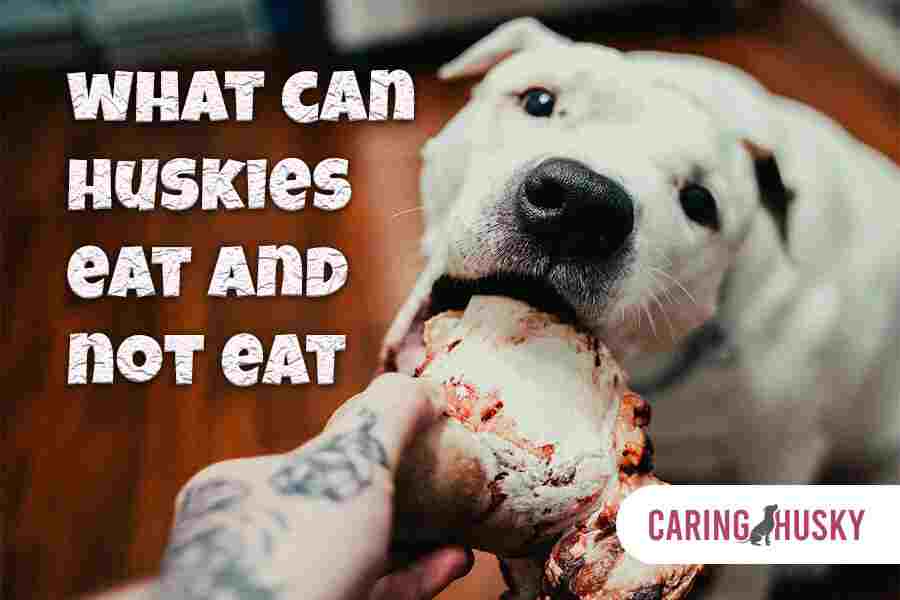
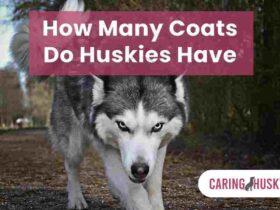
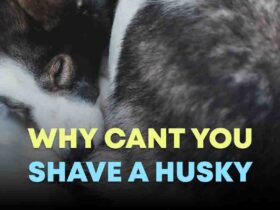
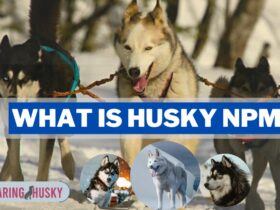
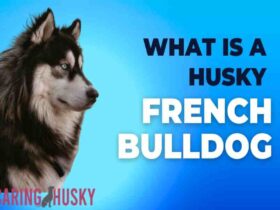
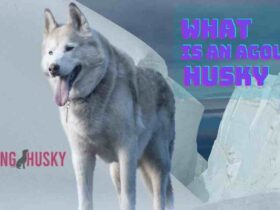
Leave a Reply